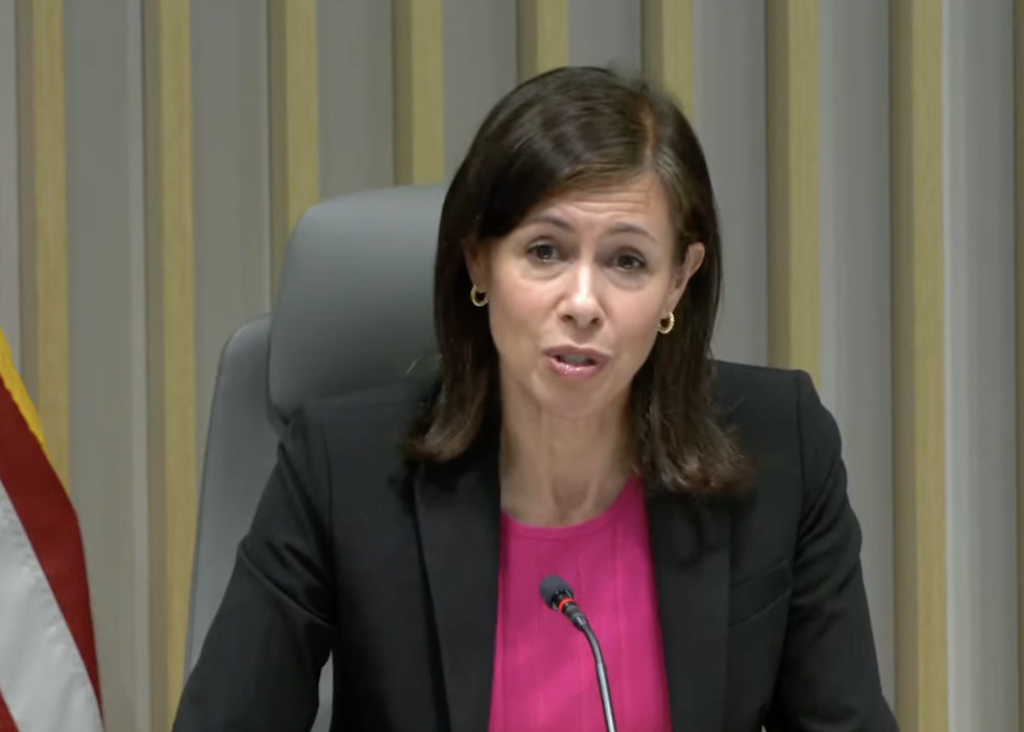
Cybersecurity
The agency said it blocked a Huawei lab from its device certification program last month.

 Photo of FCC Chairwoman Jessica Rosenworcel at the agency’s open meeting on Thursday.
Photo of FCC Chairwoman Jessica Rosenworcel at the agency’s open meeting on Thursday.
WASHINGTON, May 23, 2024 – The Federal Communications Commission voted Thursday at its public meeting to seek comment on a proposal to ban labs owned by certain companies from the agency’s equipment authorization program.
Companies on the agency’s “covered list” are already barred from receiving FCC authorizations necessary to sell new wireless products, as well as being vendors for networks receiving federal subsidies. The proposal advanced on Thursday would prohibit labs and facilities from testing equipment for the agency’s authorization program if they’re at least 10 percent owned by a covered list entity.
The covered list currently includes Huawei and ZTE, plus other Chinese manufacturers deemed national security threats by U.S. lawmakers. Those entities are also the target of the agency’s rip and replace program, which reimburses providers for swapping out Chinese gear. The program is underfunded by about $3 billion, leaving small providers faced with the prospect of shutting off service in the absence of additional funding.
The FCC said it denied a Huawei lab’s ability to participate in the certification program in April, in a move representative of what the proposal would require. Noncompliant labs with existing authorizations could also be suspended under the proposal.
The proposal would also seek comment on banning from the certification program labs controlled by entities on other lists of adversaries maintained by various federal agencies and on requiring test labs to report ownership information. Agency officials said the approved text did not differ substantially from the public draft circulated earlier this month.
FCC Chairwoman Jessica Rosenworcel said the agency has “flagged for our national security colleagues other labs with possible ties to the government of the People’s Republic of China,” but did not say how many.
The move is largely a precautionary measure, Commissioner Brendan Carr said, rather than a response to vulnerabilities in products coming out of Chinese-affiliated labs.
“If you look through the FCC’s list of [certification labs], there’s something like 160 that are based in China. And when you start to review a handful of those, there are a couple that immediately stood out to me as raising concerns that are worth scrutinizing” he said.
The agency currently recognizes about 640 test labs, which it says processes more than 30,000 new device authorizations per year. Its comment period will run for 60 days after the approved notice is published in the Federal Register, with reply comments due another 30 days after that.
Enforcement actions
The FCC also moved at its May open meeting to fine a political consultant who used artificial intelligence to fake President Joe Biden’s voice as part of a robocall scheme in New Hampshire ahead of the state’s Democratic primary in January. The calls urged voters not to participate.
Steven Kramer, the consultant, was fined $6 million and Lingo Telecom, the company that handled the call traffic, got hit with a $2 million fine. NBC reported Kramer was separately indicted on 13 counts of voter suppression in New Hampshire on Thursday.
FCC officials have been cracking down on AI material as the 2024 election approaches. The agency issued an order making all AI-generated robocalls illegal in February, and Rosenworcel circulated a proposal yesterday that would require the disclosure of AI-generated content on political ads.
Carr told reporters he does not support the discolsure proposal, but did not elaborate on his reasoning. He said he would release a statement “soon.”
Democratic FCC Commissioner Anna Gomez participated in the meeting remotely.
“The Commissioner was under the weather, and she does not need a waiver to vote remotely,” a Gomez aide said.
